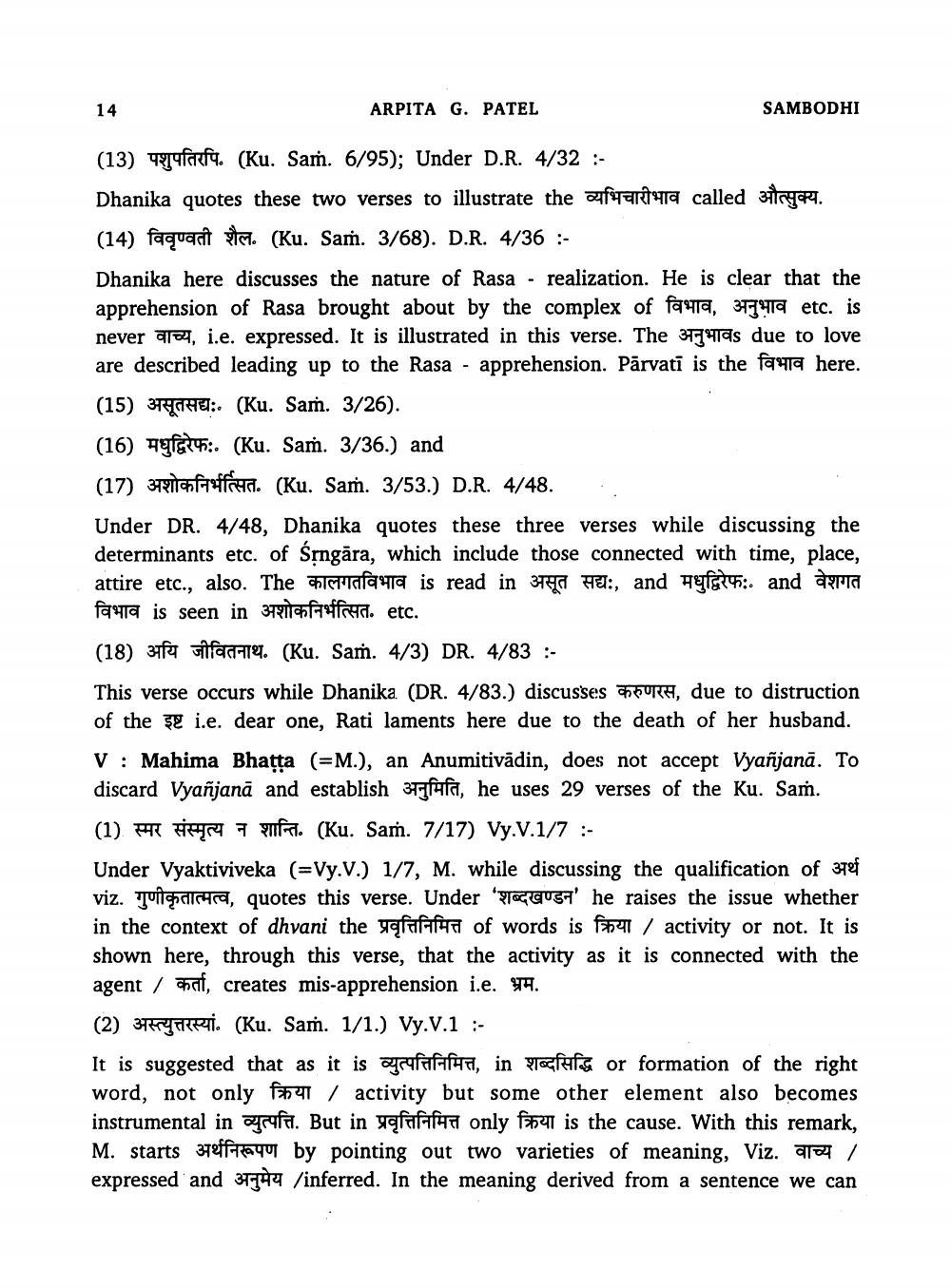________________
ARPITA G. PATEL
SAMBODHI
(13) yyfarfą. (Ku. Sam. 6/95); Under D.R. 4/32 :Dhanika quotes these two verses to illustrate the व्यभिचारीभाव called औत्सुक्य. (14) faquant stat. (Ku. Sam. 3/68). D.R. 4/36 :Dhanika here discusses the nature of Rasa - realization. He is clear that the apprehension of Rasa brought about by the complex of विभाव, अनुभाव etc. is never 0124, i.e. expressed. It is illustrated in this verse. The 37714Tas due to love are described leading up to the Rasa - apprehension. Parvati is the fayta here. (15) 3YCHET:. (Ku. Sam. 3/26). (16) Afa24.. (Ku. Sam. 3/36.) and (17) hilofteffa. (Ku. Saṁ. 3/53.) D.R. 4/48. Under DR. 4/48, Dhanika quotes these three verses while discussing the
eterminants etc. of śrngāra, which include those connected with time, place, attire etc., also. The कालगतविभाव is read in असूत सद्यः, and मधुद्विरेफ:. and वेशगत विभाव is seen in अशोकनिर्भत्सित. etc. (18) 37fu sifardate. (Ku. Saṁ. 4/3) DR. 4/83 :This verse occurs while Dhanika (DR. 4/83.) discusses ourch, due to distruction of the se i.e. dear one, Rati laments here due to the death of her husband.
V : Mahima Bhatta (=M.), an Anumitivādin, does not accept Vyañjanā. To discard Vyañjanā and establish 3 fufa, he uses 29 verses of the Ku. Sam.
(1). 7 mm. (Ku. Sam. 7/17) Vy.V.1/7 :Under Vyaktiviveka (=Vy.V.) 1/7, M. while discussing the qualification of 37ef viz. quitedicea, quotes this verse. Under 'proq 57' he raises the issue whether in the context of dhvani the yefaria of words is n / activity or not. It is shown here, through this verse, that the activity as it is connected with the agent / chat, creates mis-apprehension i.e. 94. (2) 34kryteri. (Ku. Sam. 1/1.) Vy.V.1 :It is suggested that as it is व्युत्पत्तिनिमित्त, in शब्दसिद्धि or formation of the right word, not only fon / activity but some other element also becomes instrumental in arifa. But in nqfeffit only foal is the cause. With this remark, M. starts 37effrayu by pointing out two varieties of meaning, Viz. are / expressed and 37744 /inferred. In the meaning derived from a sentence we can




